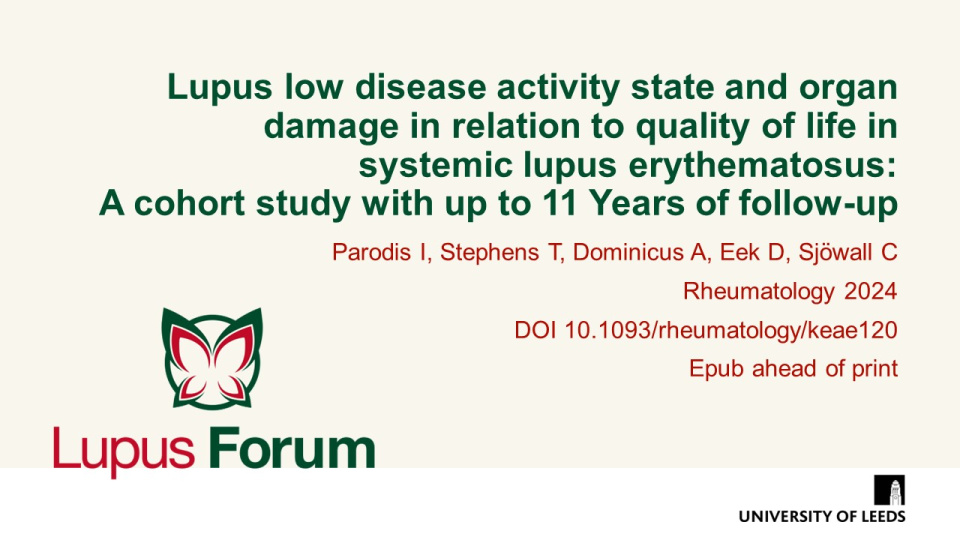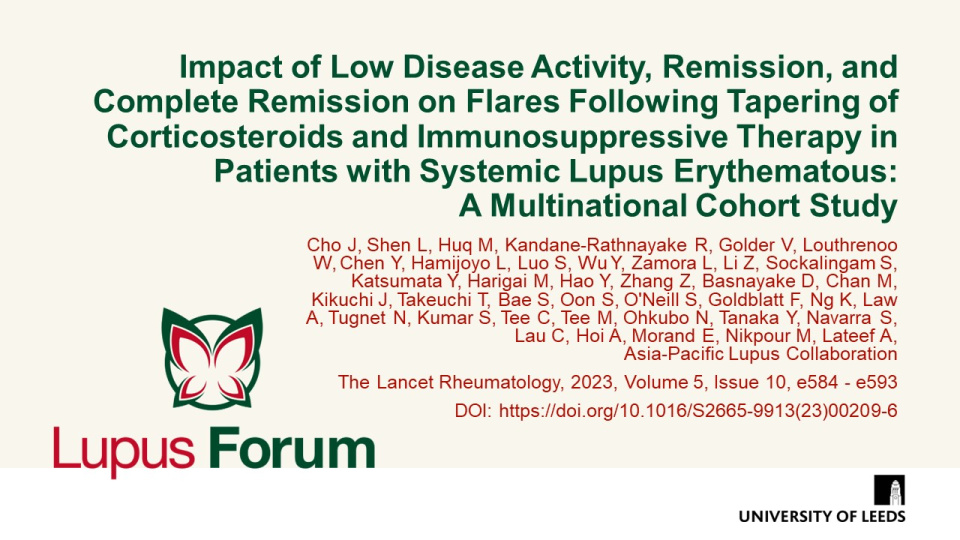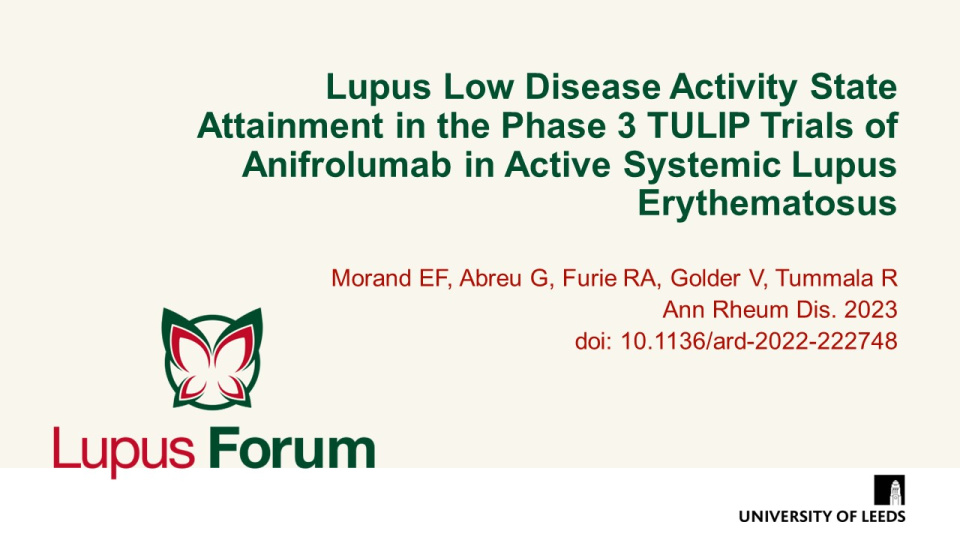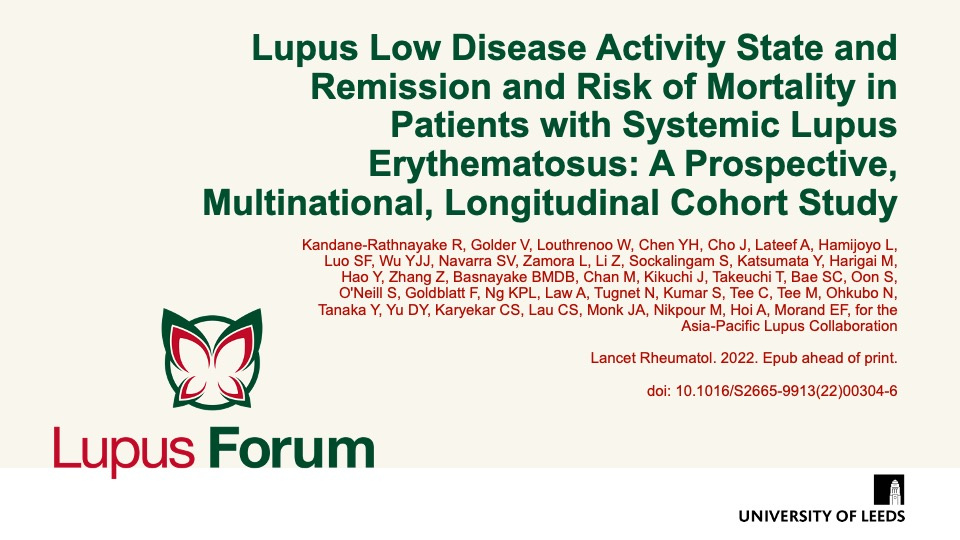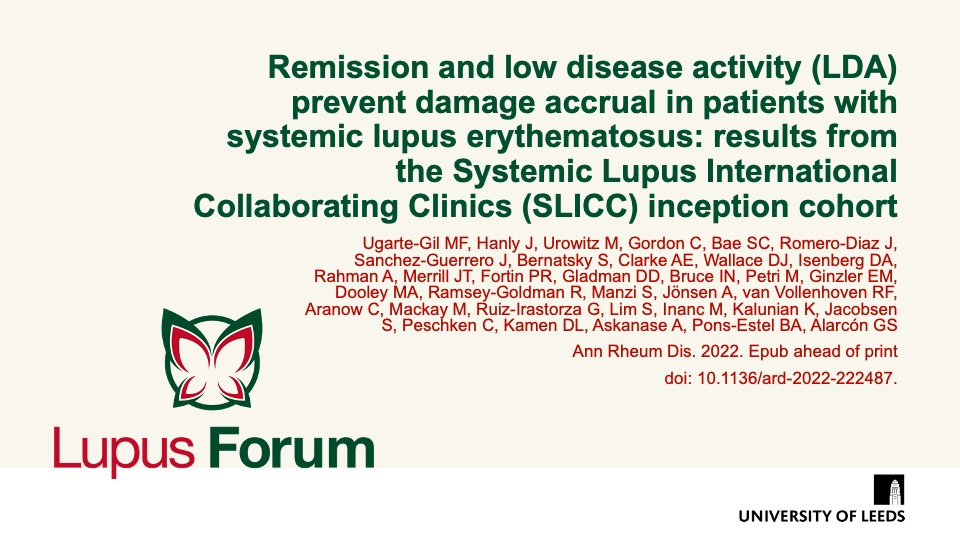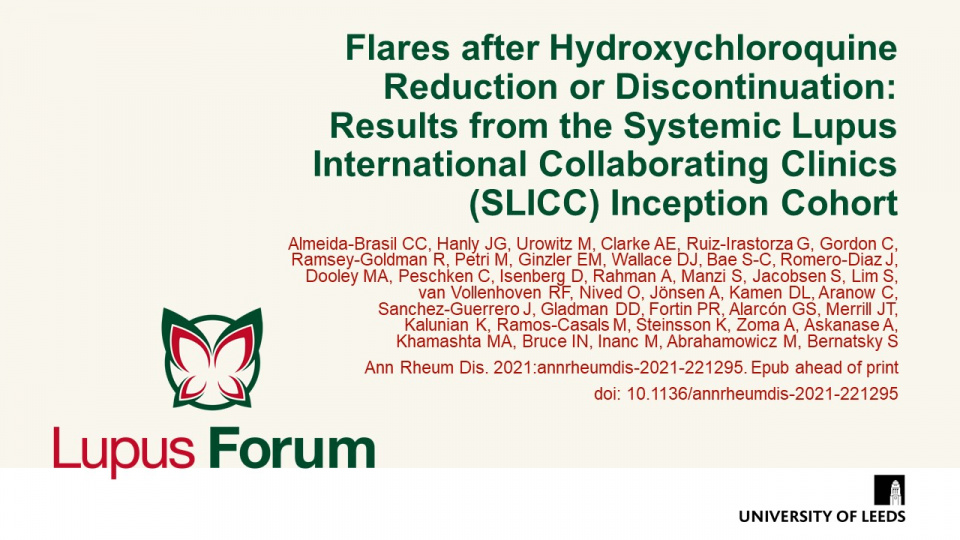Publications
Find coverage of the latest original articles on Lupus, focusing on those with data on therapeutic interventions and those that have clinical impact.
This activity is supported by an educational grant from AstraZeneca.
Lupus low disease activity state and organ damage in relation to quality of life in systemic lupus erythematosus: A cohort study with up to 11 years of follow-up
Rheumatology 2024 DOI 10.1093/rheumatology/keae120 Epub ahead of print
Patients with a lupus low disease activity state (LLDAS) irrespective of organ damage were significantly more likely to have favourable health-related quality of life, pain, fatigue, and overall health experience.
Keywords:
Impact of Low Disease Activity, Remission, and Complete Remission on Flares Following Tapering of Corticosteroids and Immunosuppressive Therapy in Patients with Systemic Lupus Erythematous: A Multinational Cohort Study
The Lancet Rheumatology, 2023, Volume 5, Issue 10, e584 - e593 DOI: https://doi.org/10.1016/S2665-9913(23)00209-6
In this study, tapering of corticosteroids or immunosuppressive therapy in patients in LLDAS, remission, or complete remission was associated with excess flares versus continuing with therapy. Tapering in complete remission was associated with lower odds of flares compared with tapering in LLDAS or remission. In addition, patients with longer sustained duration of LLDAS or remission at the time of tapering had lower odds of flare and longer time to flare versus those with a shorter duration of LLDAS or remission.
Lupus Low Disease Activity State Attainment in the Phase 3 TULIP Trials of Anifrolumab in Active Systemic Lupus Erythematosus
Ann Rheum Dis. 2023. doi: 10.1136/ard-2022-222748
Post-hoc anaylsis of TULIP trials shows that, compared with placebo, anifrolumab treatment was associated with earlier, more frequent, and more prolonged and sustained lupus low disease activity state (LLDAS).
Lupus Low Disease Activity State and Remission and Risk of Mortality in Patients with Systemic Lupus Erythematosus: A Prospective, Multinational, Longitudinal Cohort Study
Lancet Rheumatol. 2022. Epub ahead of print. doi: 10.1016/S2665-9913(22)00304-6
Lupus low disease activity state (LLDAS) significantly reduced the risk of mortality in patients with SLE.
Keywords:
Remission and low disease activity (LDA) prevent damage accrual in patients with systemic lupus erythematosus: results from the Systemic Lupus International Collaborating Clinics (SLICC) inception cohort
Ann Rheum Dis. 2022. Epub ahead of print doi: 10.1136/ard-2022-222487.
Large multinational, multiethnic cohort, study highlights the importance of treating-to-target in SLE.
Keywords:
Flares after Hydroxychloroquine Reduction or Discontinuation: Results from the Systemic Lupus International Collaborating Clinics (SLICC) Inception Cohort
Ann Rheum Dis. 2021:annrheumdis-2021-221295. Epub ahead of print
Evidence suggests that hydroxychloroquine (HCQ) reduction/withdrawal may be safe in some stable patients, but in other settings it may be associated with disease flare. Almeida-Brasil, et al. sought to evaluate SLE flares following HCQ reduction or discontinuation versus HCQ maintenance. Their data suggest that maintaining HCQ was associated with a lower flare risk than reduction or discontinuation, even in patients with low disease activity or remission.


